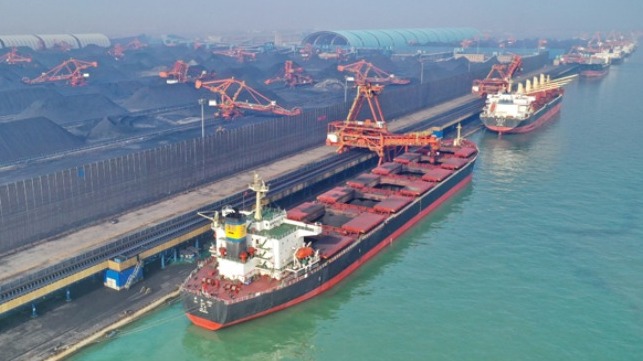
Dozens of Bulkers Remain Stranded off China as Coal Standoff Drags On
At this point in the COVID-19 pandemic, seafarers have become all too used to bureaucratic obstacles to crew change. But a different form of inertia has stranded more than 60 bulkers and their crews off the coast of China, where they await resolution to a diplomatic standoff between Beijing and the government of Australia.
According to shipbroker Braemar ACM, as many as two dozen Capesizes and four dozen Panamax bulkers were awaiting permission to offload cargoes of Australian coal at ports in northern China as of last week. Some have been there since last June, but their cargoes may not be coming ashore soon: Beijing is blocking the importation of Australian coal, a retaliatory response to the Australian government’s call for an investigation into the origins of COVID-19 in Wuhan. Meanwhile, the bulkers’ crews are stuck on board and cannot be exchanged – at least, not without leaving Chinese waters first.
About two dozen of these ships are managed by Wallem Group, and Wallem CEO Frank Coles called for immediate action by Chinese regulators.
“Except in very rare cases China will not allow crew changes for anyone other than Chinese seafarers,” he wrote in an open letter. “COVID is the reason given, but this is hardly credible for these sailors on ships at anchor for the last six months. This is isolation at the highest level. They are obviously COVID-free.”
Barring an unlikely change in Chinese policy, the charterers and owners should make their own arrangements to exchange crews, he said, making a short trip to a friendlier port state if needed. The Indian bulker Jag Anand did exactly this on January 10, departing her anchorage off Tangshan and sailing to Chiba, Japan, where she exchanged her 23 crewmembers and sent them safely home to India. According to Coles, this could be done by other vessels if the charterers would allow it.
“Shipowners could sail the ships to other countries and change the crew and then come back and join the line. However, the charterers, the owners of the cargo, do not agree [and] do not support losing their place in the line,” Coles wrote. “Money over people, the best example of the disrespect and attitude to seafarers in the maritime industry, and especially by charterers.”
Coles made clear that he does not expect the situation to change. “It must be time for China to do the sensible thing and allow these crew changes to happen,” he said. “If not, then the charterers must see sense, the relationship between owners and charterers on off-hire must be voided in this situation. But then again, I am expecting charterers to carry about human welfare. Wishful thinking it seems.”
Coles has since stepped down from his post at Wallem and will be pursuing new ventures in seafarer advocacy.

